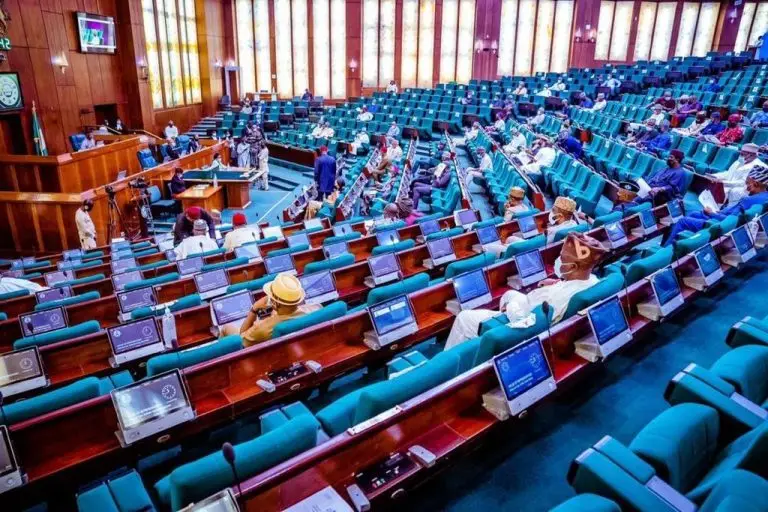According to Section II, Part I of the bill, the proposed Bola Tinubu university will “encourage the advancement of learning and provide opportunities for higher education in Nigerian languages and cultures to all persons, without distinction of race, creed, sex, or political conviction.”
Abuja, Nigeria – The House of Representatives has taken a significant step toward establishing a new federal university focused on promoting Nigerian languages.
On Thursday, lawmakers passed the bill for the establishment of the Bola Ahmed Tinubu Federal University of Nigerian Languages for its first reading.
The bill, sponsored by Deputy Speaker Benjamin Kalu and eight other members, aims to create a specialized institution that will enhance the study and preservation of Nigerian languages and cultures.
According to Section II, Part I of the bill, the proposed Bola Tinubu university will “encourage the advancement of learning and provide opportunities for higher education in Nigerian languages and cultures to all persons, without distinction of race, creed, sex, or political conviction.”
The institution will offer various academic and professional programs, including diplomas, first degrees, postgraduate research, and higher degrees, with a focus on developing practical skills in Nigerian languages. The primary goal is to “produce socially mature persons capable of communicating, understanding, and using Nigerian languages for national development.”
Additionally, the university will serve as a hub for postgraduate training, research, and innovation, leveraging Nigeria’s natural, economic, and human resources. It will also work closely with other national institutions engaged in language and cultural development.
The institution will emphasize teaching, research, outreach programs, and in-service training to ensure continuous education and adaptation in Nigerian languages.

The bill further outlines the university’s commitment to providing language services and consultancy, alongside fostering the acquisition of knowledge and skills across Nigeria’s diverse linguistic landscape.
Per the provisions in Section 14(2), the President, as the official Visitor to the university, is mandated to conduct a visitation to the institution at least once every five years. The university is also expected to cooperate fully with the Visitor during these evaluations.
The President will also hold the authority to remove council members, excluding the pro-chancellor and the vice-chancellor, based on recommendations from the council in cases of misconduct or inability to perform their duties.
The bill will proceed to a second reading in the coming weeks, followed by a public hearing to gather input from relevant stakeholders.










Join our Channel...